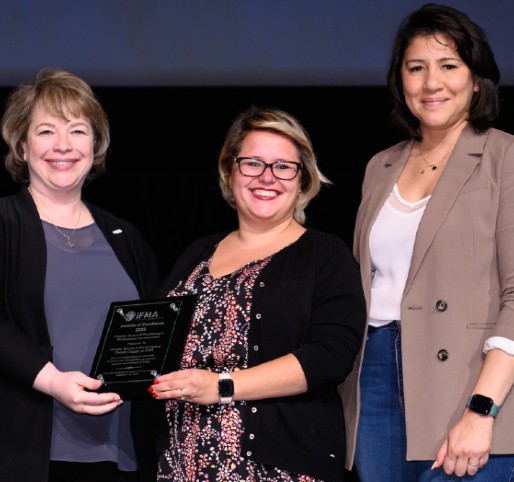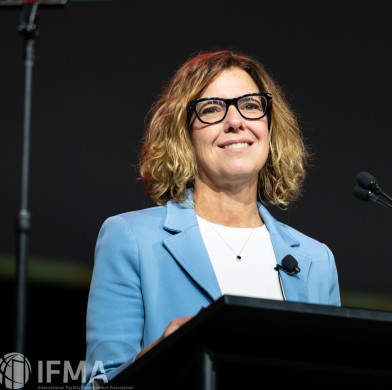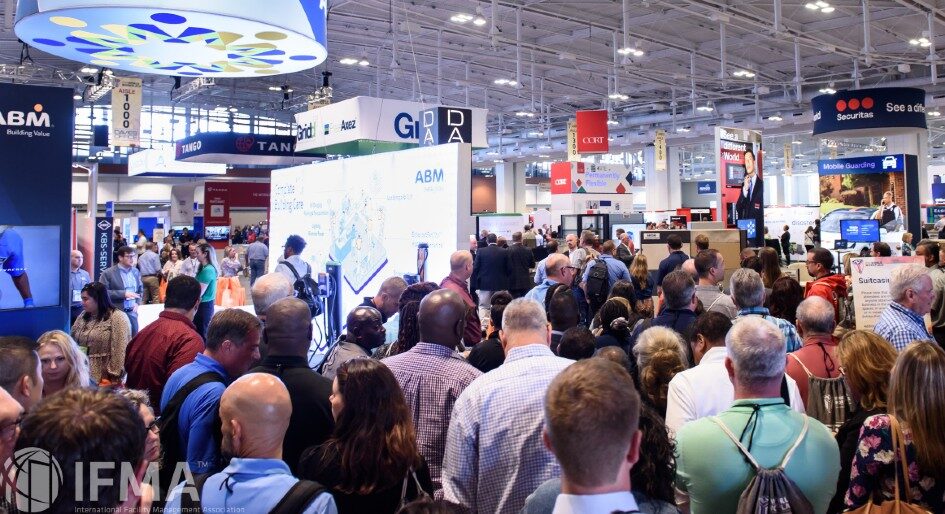The more things change, the more things stay the same. In the weeks since IFMA World Workplace, I’ve been thinking a lot about that saying. What its author — the French writer Jean-Baptiste Alphonse Karr — meant was that no matter how turbulent or emphatic changes may seem, they never really affect reality on a deeper level other than to reinforce the status quo. The underlying reasons for why the world is how it is never change. In other words, we are doomed to repeat the same mistakes.
This isn’t a comment on the event itself, certainly not a negative one. The 2022 World Workplace was great. The opportunity for the industry to come together after a crazy two and a half years was important. But it says something fascinating about the forces driving facility management — and many other industries for that matter.
What has changed?
Clearly, there has been a seismic shift in how we think and talk about the workplace. And the tremors from COVID-19 could be felt throughout both the convention hall and the conference program at Nashville’s Music City Center.
Hybrid working is the new norm. Try as they might, employers can’t convince their people to return to the office. Even blanket mandates don’t work. A recent study by Stanford University found that nearly half of employees are simply ignoring requirements to return to the office full time, leaving business leaders flummoxed. According to research by the CBC and Angus Reid Institute, more than half of Canadians working from home said they would look for a new job if they were asked to return to the office, with almost a quarter saying they would quit on the spot.
Andrew Mawson, managing director of global management consultancy Advanced Workplace Associates (AWA), told World Workplace delegates that the major factor behind the reluctance to return was that few organizations have gotten hybrid working right so far. “People are having a poor experience in the office and it’s not encouraging them to come back again,” he said.
AWA research backed this up, Mawson said. The Hybrid Working Index, research comprising nearly 80,000 employees globally undertaken during the summer of 2022, revealed that average daily attendance was just 26 percent. More importantly, the study found that having a hybrid working policy in place led to higher office attendance, and even higher attendance if the policy was decided at a team level, suggesting that the sweet spot is somewhere between sweeping mandate and total flexibility. No easy task.
Everything is tech
Elsewhere, it was fascinating to see the huge influx of technology companies at World Workplace – both on the exhibition floor and in the conference program. In the past, cleaning suppliers, landscapers, and pest control companies dominated FM shows. Not anymore. Now it’s all space booking systems, occupancy and utilization sensors, and analytics software.
This was already the industry’s direction of travel, but the pandemic has sent it into hyper speed. Organizations are looking to make significant changes to their real estate strategies, especially in terms of how much space they need in this new hybrid era, and boardrooms want the data to help them make the right decisions.
Time and time again in Nashville, client-side facility managers were asking the same questions. How can they attract employees back to the office? Do they even need to come back? What happens to all that space they have if they don’t? And perhaps, most importantly, what was everyone else doing?
World Workplace sought to provide some answers. Jeffrey Saunders, CEO of Nordic Foresight and IFMA’s Director of Research, revealed the results from a recent IFMA member survey. On property strategy, 59 per cent said they plan to reduce square footage, 44 per cent said they would be leveraging co-working spaces, and 54 per cent said they would be focusing on more flex space with short leases. On the potential impacts of a recession, 40 per cent of members said they would make greater use of distributed working to reduce personal costs, such as transportation and time. Meanwhile, nearly half agreed that technology adoption will be pivotal in creating the kind of frictionless offices and office experiences that underpin hybrid working.
In a separate session, Darlene Pope, president at IWMS provider Planon, argued that this technology needs to be mobile-first. “The future of buildings should be based on the technology we use outside of them,” she said. “GPS is a great example. Everyone is walking around with an occupancy measurement tool in their pocket.”

Greater Toronto & South Central Ontario IFMA Chapter wins Award for Excellence in Professional Development.
Seeking to assuage privacy concerns around tracking employee movement, Pope said we’re already being tracked all the time.
She suggested that younger generations are very comfortable with sharing their location with friends on apps such as Snapchat and pointed to the everyday use of Uber. “We give our location because we see value in it,” Pope added. “Could you imagine ordering an Uber if they couldn’t find out where you are?”
There were less familiar technologies being discussed at World Workplace too. Worktech provider Eptura explored the potential for digital twins – BIM-powered digital 3D building replicas – to help make facility managers’ lives easier by providing historic and real-time lifecycle asset and space management data.
Cody Grey, senior director of product asset management, and Matt Meservy, VP of product, said there’s a misconception of digital twins as Tony Stark technology, but that’s just not true. They explained that everyone must embark on a maturity journey across four pillars: the initial asset data, the visual model, the operational model, then the analytics. “These are the building blocks to get there,” Grey said. “The aim is to get all your FM and building tech pillars to talk.”
Interestingly, the facility managers in the audience were worried about age-old concerns. “How do we demonstrate return on investment to those who sign the checks?” they asked.
Well-being, well said
Another undeniable shift since COVID-19 began is the growing demand for workplaces that prioritize occupiers’ health and wellbeing. Employees want workspaces that are effective and supportive. They want workspaces to work harder for them, giving them a reason to make the gruelling, monotonous commute. They also want to know that they are being looked after.

Dr Jessica Green delivers Thursday’s Plenary session.
In a plenary session, scientist and CEO of Phylagen Dr. Jessica Green, told delegates what the heightened expectations around indoor air quality might mean for their profession in the long run. “100 years ago, people lived with waterborne diseases; then we figured out how to modernize sewage,” she said. “Today, we just accept airborne diseases such as the cold and flu. We move around, breathing in air that’s not clean. What will people say about this 100 years from now?”
While Dr. Green said that the uptick in corporate interest for better indoor air quality was encouraging, it has also highlighted some urgent environmental challenges. “If you have airborne diseases in indoor environments, the primary solutions we have are ventilation, filtration, and air treatment. Right now, all these systems require energy,” she said. “We’ll see a feedback loop. Climate change is making hundreds of diseases much worse. And more airborne diseases means that we need to use more carbon to tackle them.”
Dr. Green finished the session with a call to action for delegates: Now is the time to invest in green tools and new, environmentally friendly technologies for cleaner air.
Age-old issues
Despite these monumental changes, the tenor at World Workplace felt very much like it had in the FM conferences of previous years. It’s a sector that is still unsure of itself despite having so much to give; still battling to gain acceptance and the budget from the boardroom; still wondering if it’s strategic enough; still uncertain about its jurisdiction – how much influence and control does it really have over people? Should it be called something different?
In one of the final sessions of the conference, Eptura’s Mike Petrusky, host of the Workplace Innovator Podcast, held a five-year reunion with some of his favourite podcast guests. HOK’s Kay Sargent was one of them, and she perhaps summed it up best. “[The COVID-19 pandemic] has made us stupider,” she said. “We have an opportunity to make a difference. Don’t blow it by acting like we know nothing.”
Sargent is right. FM doesn’t need to repeat the same mistakes. It’s in the driving seat during one of the most monumental events in modern history and has a unique opportunity to shape the future.
Simon Iatrou is the communications director for North America at Magenta Associates.




